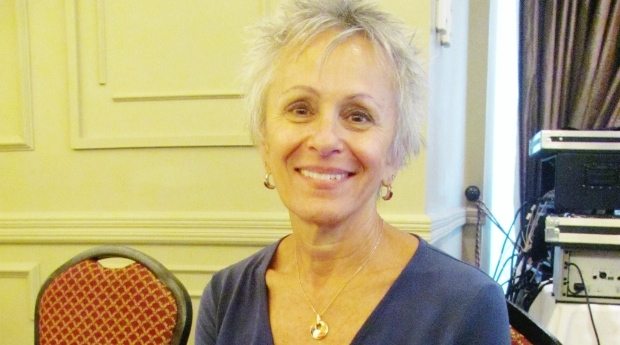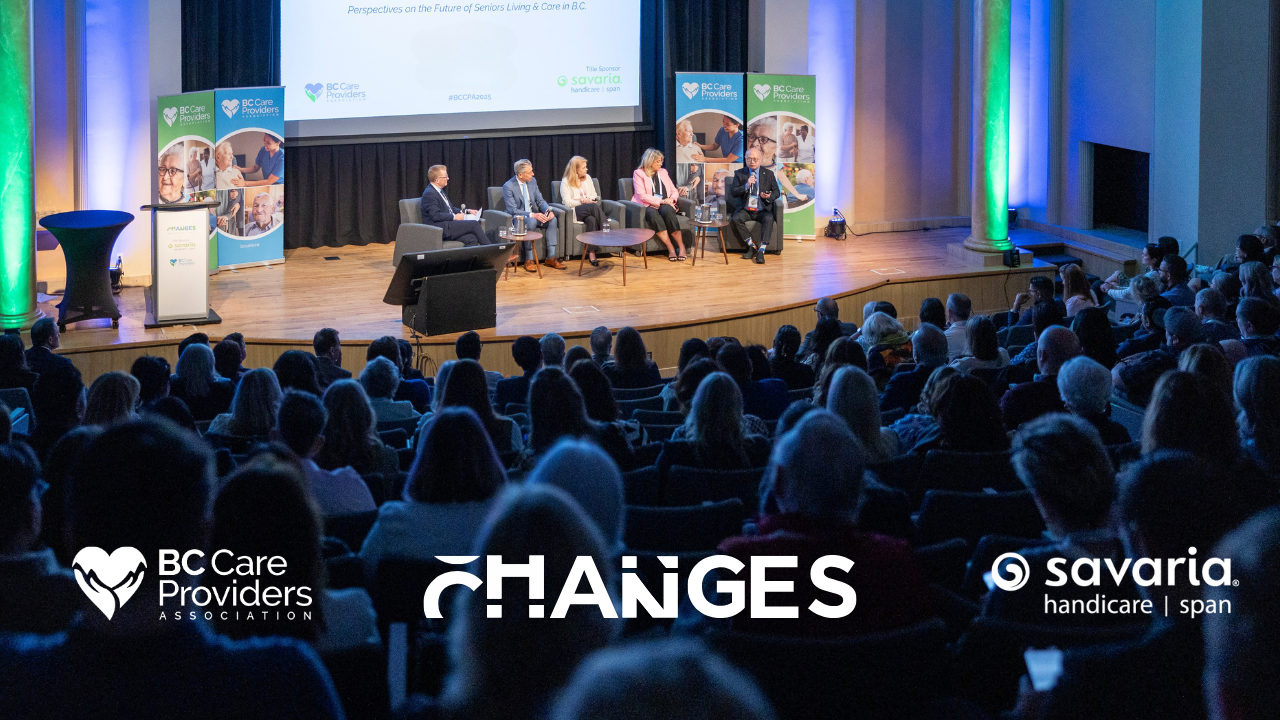The third Care to Chat was held on April 8, 2014. Maureen McGrath, host of CKNW Sunday Night Sex Show, delivered the opening keynote address and joined the panel discussion moderated by Sophie Lui, anchor, Global BC Morning News.
The two hour event included a discussion about the intimacy needs of residents in care homes. A particular focus during the dialogue were strategies for recognizing and responding to the needs of lesbian, gay, bisexual and transgender residents. Among the crowd were industry professionals, front-line care providers, and members of Vancouver’s pride community.
Reporting on the discussion was the Daily Xtra. Read the full article below, or click here.
The highly anticipated final Care to Chat will be taking place at this year’s Annual Conference, May 25-27 in Whistler, BC. The keynote speaker will be Isobel Mackenzie, BC’s new Seniors Advocate. Over 300 individuals are expected to attend.
Anyone interested in attending the final Care to Chat will have to register as a delegate for the conference. However, delegate spots are going quickly, so please register soon.
Are gay seniors lonelier than straight ones?
More must be done to support sexual intimacy in care homes, experts say
BY SHAUNA LEWIS
Gay and lesbian seniors experience more isolation and loneliness in residential care facilities than their straight counterparts because of a lack of acceptance, education and lower intake numbers, local health experts say.
“One of the biggest issues is that a lot of queer seniors may go into a home without a partner,” says sexual health expert and radio personality Maureen McGrath. McGrath was the keynote speaker at an April 8 BC Care Providers Association seminar on the issue of seniors and sex in residential care homes.

Many gay and lesbian seniors may feel forced to retreat back into the closet in care facilities where their straight peers aren’t welcoming, she says. Gay seniors tend to have lost more friends than their straight counterparts, as well, she notes, attributing this partly to HIV/AIDS.
The resulting isolation leads to loneliness and a whole slew of physical and mental problems. “It’s the loneliness factor. It’s tremendously negative,” she says.
Long-term care residents still have needs and desires, health experts say, both for sex and for intimacy and privacy. More must done to support safe and consensual sexual relationships in care homes, they say.
“Sex is good for you. Sex is good for everybody at every single age,” McGrath says.
Alan Herbert, creator of the gay seniors group Gay and Grey, attended the seminar. He says seniors, sex and aging are important issues in the community. “All of the issues talked about today are what we are talking about in our group,” he says.
He, too, thinks the rate of loneliness among gay seniors is particularly high. He says residential care facilities need guidelines for caring for gay seniors. Not all facilities are gay-friendly, he says.
“We have some residents who are terribly homophobic,” agrees Catherine Kohm, executive director of Haro Park Centre, which includes independent housing, assisted living and residential care for seniors in the West End.
Kohm, too, thinks gay seniors face far more isolation than straight residents, partly because the number of openly gay seniors in residential care is low and partly because of the intolerance of their straight neighbours.
“I would say loneliness is probably the worst issue they face because there is a smaller cohort of out LGBTQ people in the homes,” she says.
Of the 154 seniors in residential care at Haro Park Centre, Kohm says only 20 openly identify as lesbian, gay, bisexual or transgender.
Despite some homophobic residents, Kohm says others are accepting. “There is not as much discrimination as one would expect,” she says, speculating this might be because of the facility’s proximity to the gay village.
Asked what would help gay residents feel more comfortable in care facilities, Kohn says a shift in attitude is needed. She says staff, residents and family members need more education around the needs of gay seniors.
“Guidelines are great,” she says. “They are a foundation. Policies are great and you can write policies, but at the end of the day, if I’m a staff member, I’m not going to hold up a policy and say, ‘Hmm, what am I supposed to do about these two lesbians who want to have a relationship?’
“It’s more about the education and attitude and connecting with people and figuring out what it is they want,” she says.
Kohm says Haro Park Centre has held workshops and discussions with staff, residents and their families regarding how better to accommodate the needs of LGBT seniors.
High incidences of sexually transmitted infections among the elderly, sexual consent among residents with dementia, providing safe spaces for seniors to have sexual relationships, and the importance of non-sexual intimacy among the elderly were also discussed at the seminar.





